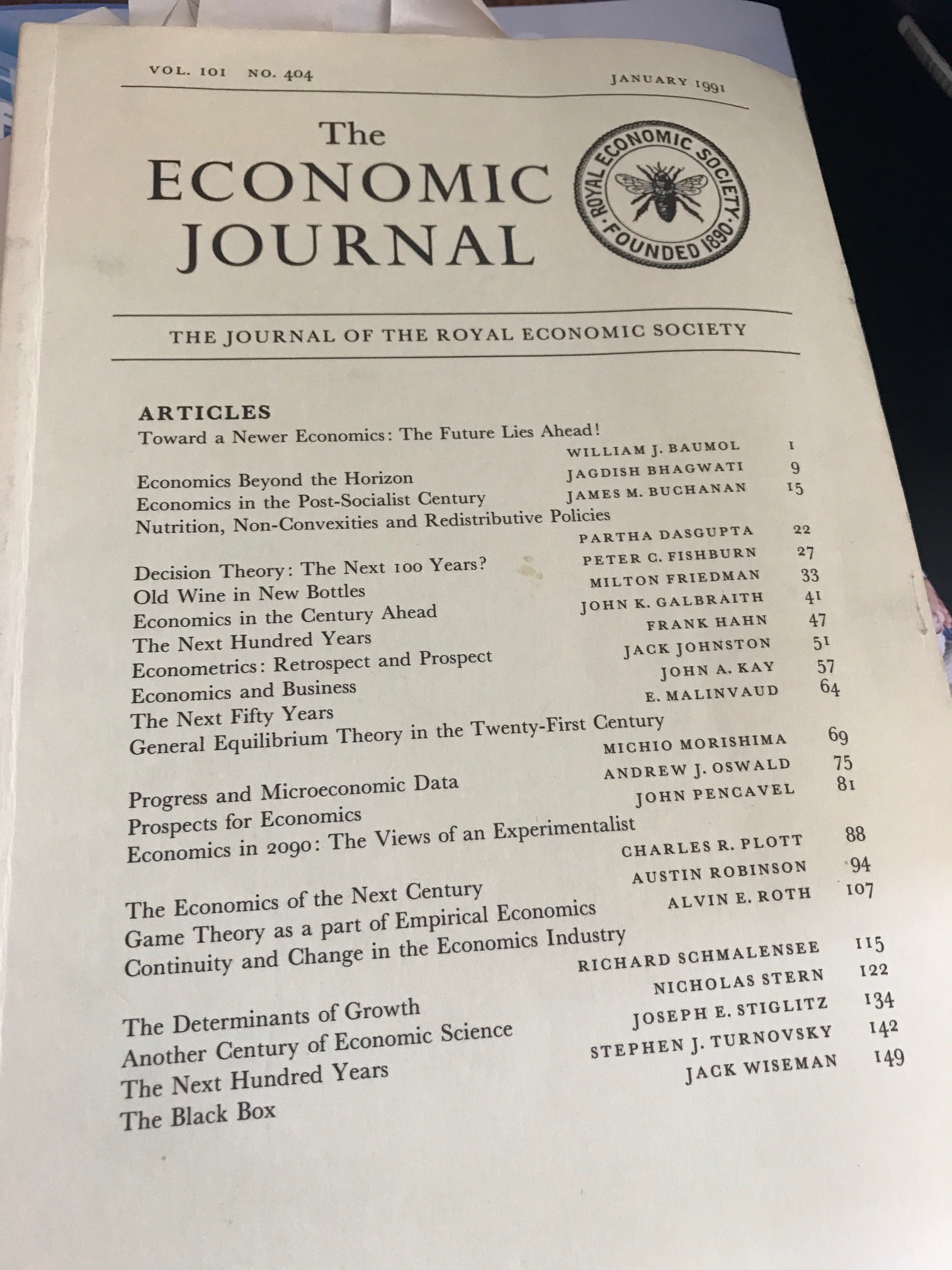The wonderful Beatrice Cherrier (@Undercoverhist) has been tweeting about the articles in the January 1991 special edition of The Economic Journal, a centenary issue which published articles by eminent economists looking forward to the next century of the subject. For more on the individual articles, go to Beatrice’s tweets (or read the articles!). But she sent me to my shelves to blow the dust of my copy & I thought the contents list was very striking: The first thing that strikes me now is that there are zero women contributors. Another is the poignancy of reaching for this the day after the death of the wonderful Will Baumol. I think he was one of the most creative and observant economists, as well as a truly delightful person, and in a sense paid the penalty for the breadth of his interests in not being more recognised inside and outside the profession. His article in the special issue is in fact very prescient – calling for more eclecticism, more economic history especially in the curriculum, less short-run macro, less “display of technique for its own sake”, more emphasis on behavioural economics.
The first thing that strikes me now is that there are zero women contributors. Another is the poignancy of reaching for this the day after the death of the wonderful Will Baumol. I think he was one of the most creative and observant economists, as well as a truly delightful person, and in a sense paid the penalty for the breadth of his interests in not being more recognised inside and outside the profession. His article in the special issue is in fact very prescient – calling for more eclecticism, more economic history especially in the curriculum, less short-run macro, less “display of technique for its own sake”, more emphasis on behavioural economics.
And this underlines another striking think about the contents list, which is how little it anticipates the current areas of interest in the subject, whether that be inequality or economic geography, behavioural research or data and measurement. Forgivable though – who would like to predict the next 100 years of economics??
And now, off to a day of more disciplinary introspection, at the Economics Network Event on Economics: The Profession and the Public.

In the post war mid 20th Century there were the abstract theories of economics, in the study of which few women were to be found. On the other hand there were many colleges where Domestic Economy was either a major or sometimes principal subject, which were for women. Both academic staff and the students were of high standards. Which of the two, I wonder, has been the more useful and reliable? Which has given more benefit to more people and made their lives better?